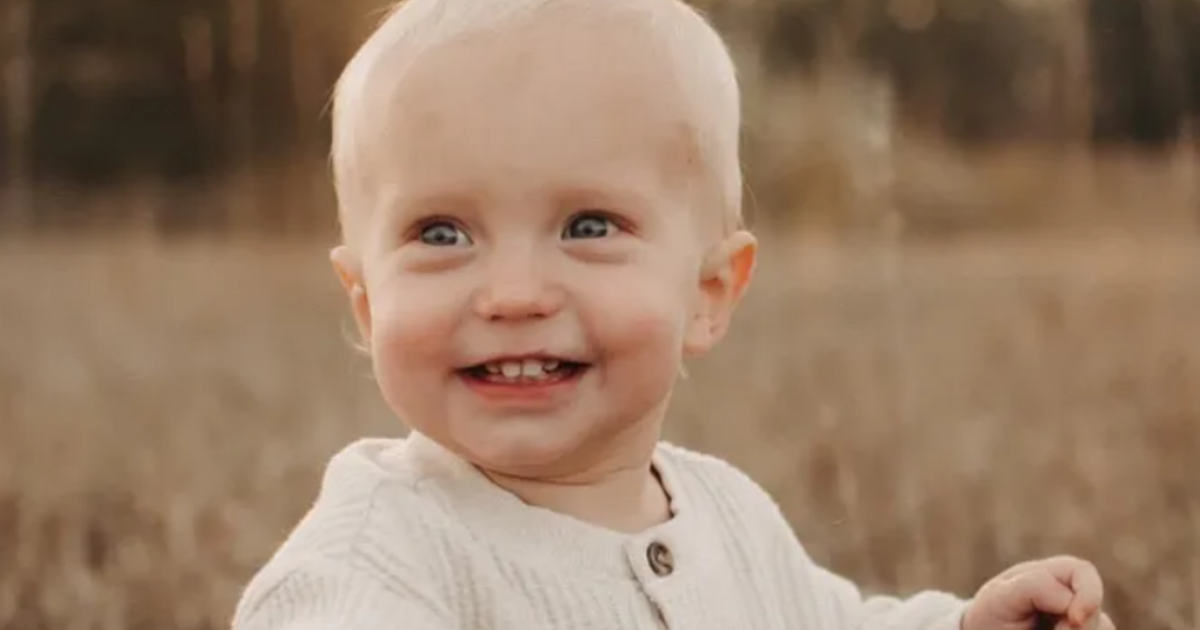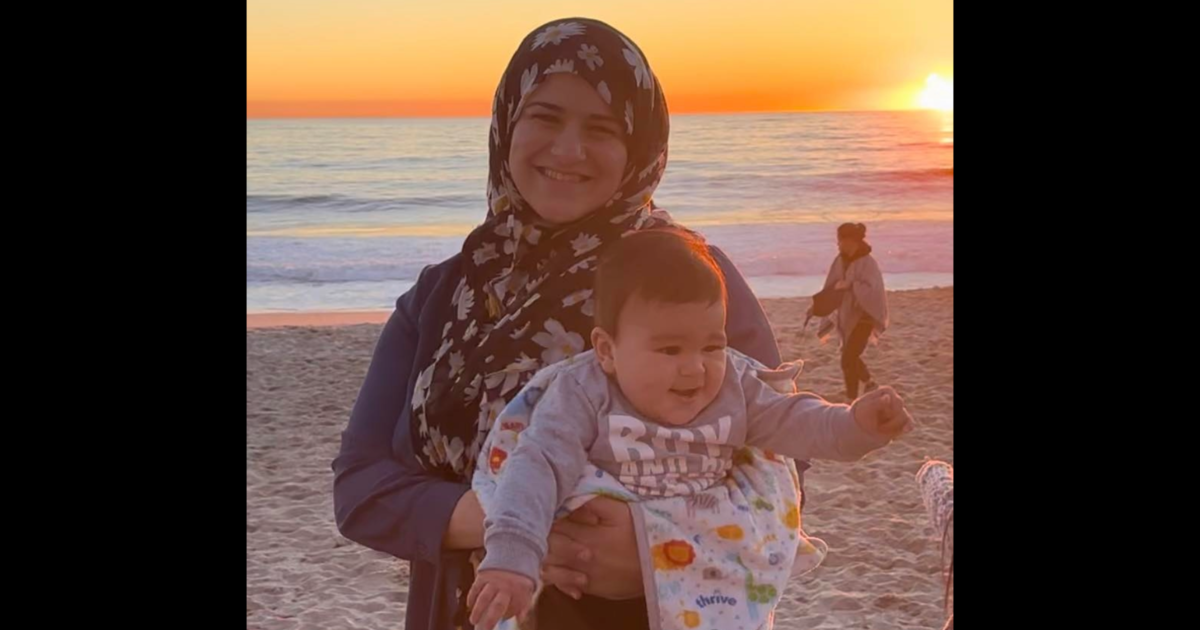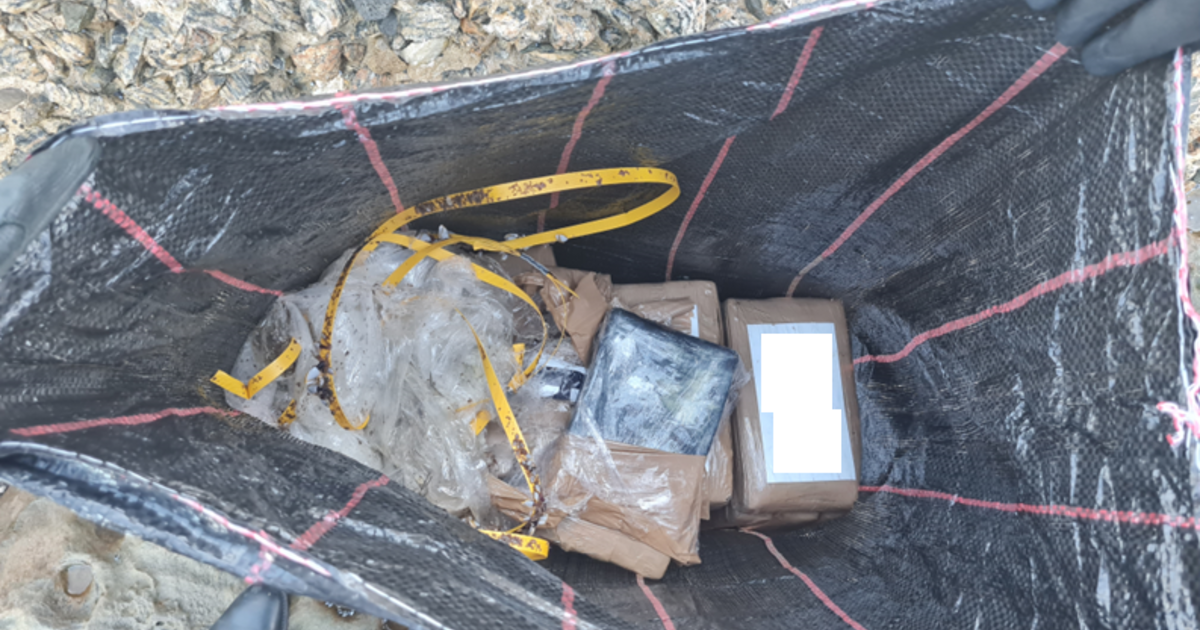Keith Ellison, lead prosecutor in George Floyd case: "Injustice has been a hallmark of our criminal justice system"
Minnesota Attorney General Keith Ellison, who will lead all prosecutions related to the death of George Floyd, said Monday that "injustice has been a hallmark of our criminal justice system."
"We are working expeditiously, as fast as we can, but we have a duty to be fair and we're going to be fair," Ellison told Elaine Quijano, anchor of "Red & Blue" on CBSN. "But let me tell you, my eyes work pretty well, I saw what everybody saw, and I am committed to justice in this case."
Ellison's comments come after nearly a week of nationwide protests, which have turned into violent clashes between police and demonstrators in many U.S. cities. In Minnesota, Governor Tim Walz fully mobilized the state's National Guard this weekend. The protests were sparked by the death of George Floyd, the Minnesota man who died on May 25 after a police officer pressed his knee onto his neck — despite Floyd's repeated pleading for air.
Earlier Monday, an independent autopsy concluded that Floyd died as a result of mechanical asphyxiation, and the medical examiner called his death a homicide. A second autopsy commissioned by Hennepin County also called his death a homicide, but disagreed on how exactly he died.
Derek Chauvin, the officer who pressed his knee into Floyd's neck, was charged last Friday with third-degree murder and second-degree manslaughter. But protesters have called for more serious charges against Chauvin and for the other officers present to be charged.
Read Quijano's interview with Ellison below:
Quijano: I want to start by getting your reaction to the independent autopsy results released today. A lawyer for George Floyd's family says it found he died from "asphyxia due to neck and back compression that led to a lack of blood flow to the brain." Does that change how Derek Chauvin should be prosecuted?
Ellison: You know at this point, it's not proper for me to comment on the evidence. We have been in touch with Mr. Crump, we're receiving a copy of this autopsy. It is important information and we take it very seriously, and we will factor it in. All the information we can get our hands on, we want to use that. We are taking a fresh look at the charges, at the evidence, and at any individual who we may or may not eventually also include as a defendant in this case.
So, it's important and it's influential, clearly, but I really can't assign a weight to it because I haven't read it myself, and neither has my staff. We are arranging to get a copy, and when we review it, we will factor it into our calculations.
As you know, there are calls for the other three police officers involved in George Floyd's arrest and subsequent death to also face charges. Do you anticipate that will happen?
Certainly, it's on the table. Let me be clear, it is very important that I protect this prosecution, meaning that I don't want anybody to say that there was a rush to judgment or that the charges are the product of public pressure. I need to be able to say that based on the facts and the behavior of the individuals involved, and the law, that these charges are just and are fair and are right.
What I am sharing with you and everybody else is that they can count on me to hold people to maximum accountability based on the available charges and the facts that exist in the case. With neither fear or favor, we are going to hold people accountable and get justice for this victim, Mr. George Floyd.
This question of accountability — when people see that video, for some, it is clear. But could you talk about some of the unique challenges prosecuting police officers in particular?
Well, these cases have challenges. Look at the Freddie Gray case, nobody eventually got convicted for that. If you look at the Walter Scott case, even Philando Castile a few years ago here in Minnesota. I'm old enough to remember the Rodney King case where there was an acquittal in that Simi Valley jury on the first round. These cases are not easy.
I know people look at the video and they are like, "What is the problem? Charge him." It is simple, we see it — but by time an experienced defense attorney gets a hold of this case, they begin to look for any crack that they can, and they are experienced in trying to raise doubts. That means we have to be prepared. That means we have to work very hard and make certain that we have an airtight, ironclad case, and that takes preparation.
So I am asking for folks who have invested their trust in me to conduct this prosecution to allow me to do the kind of preparation that will give them long-term satisfaction that justice was done, as opposed to short-term promises about who is going to be charged and with what. We are working expeditiously, as fast as we can, but we have a duty to be fair and we're going to be fair. But let me tell you, my eyes work pretty well, I saw what everybody saw, and I am committed to justice in this case.
What do you say to someone who says, "If that's the case, and these challenges are so great, does that reflect a problem here, a weakness in our criminal justice system when it comes to protecting particularly African American men?"
Yes, absolutely that is true. I would agree with that, there is no doubt about it. Our criminal justice system is used as a system of social control so often. I mean, just look at the drug laws. I mean, blacks and whites use marijuana at the exact same rate and blacks are arrested way more, go to prison way more — and now that the country is saying we are going to go into the cannabis business, very few African Americans are even allowed to participate in that industry.
So yeah, injustice has been a hallmark of our criminal justice system as it relates to African Americans, but I'd also add other peoples of color, poor white people. You know, we fund prosecution, we don't find public defense systems. All over the country, this is a very serious problem and it contributes to the rage and anger that we see all across our country. And I think that we can, and I will do all that I can —
Is that something you can help address, Mr. Attorney General?
Absolutely. Well, the first thing is justice for Mr. George Floyd. That's what we've got to do, that is job number one. But that will not bring us to justice. We have got to have, in every state, city, and in the federal government, we've got to have a deep-seated analysis of how we make this society truly just.
I will say that the federal government under President Donald Trump has not brought a single pattern-or-practice lawsuit against a single municipality. President Obama did, but even, he tried to roll those back when he came into office. We need the federal government as a partner, and I'm urging them to step up and look at this particular crisis as an opportunity to do the right thing.
You mentioned the president. I also want to ask you about comments he made. What is your reaction to his call for governors and law enforcement to "dominate" protesters?
I think this attitude and spirit of domination is exactly what has sparked the problem. The fact that Mr. George Floyd was not talked to — according to the complaint, they walked him to the car with a gun drawn even though he was suspected, never convicted, of a nonviolent offense, I think that is the heart of the problem.
It doesn't work. In fact, it has caused protests all over the United States and the world. It causes civil judgments for cities, it causes loss of life, injury, distrust of law enforcement. And low-income communities need law enforcement, they are so often the greatest victims of criminal action — so we need a trusting relationship with law enforcement, but we don't have one because of this attitude of domination. I think the president is incorrect, desperately so.
The president has asserted many of the protesters are members of antifa. Do you agree with that assessment?
We have no evidence that that is true at all. We do have evidence that people who are not in any way supportive of the protest or justice for George Floyd are actually at work committing acts of arson. We have seen them on tape, they have been confronted by some of the legitimate protesters, but where they come from and what their ideology is premature. Nobody really knows that, and it is irresponsible to jump to conclusions before we have evidence.
I do want to ask about 2018 when you faced criticism for tweeting a photo of yourself holding the antifa anti-fascist handbook. Has your opinion of the antifa movement changed since you became Minnesota's attorney general?
The first time I ever heard the word is when Trump said it. I walked into a bookstore and thought it was funny, that I just heard Trump mention it, and here's a book that is right there with the name on it. So I thought it was actually funny, and I didn't think it would be nearly the thing that the people, for political reasons, wanted to try to push.
It's a photo, it was meant to not even be a serious thing — but in American politics, anything and everything somebody can use to try to discredit you, they do. So that's just the way it is.
All right, Minnesota Attorney General Keith Ellison. Mr. Ellison, thank you so much for taking the time to talk to us. We really appreciate it.
Thank you.




